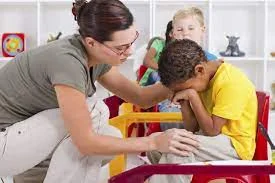Learn effective strategies for raising grateful kids and correcting entitlement issues in this comprehensive guide. Discover expert insights and practical tips for nurturing gratitude in children.
In today’s fast-paced world, where materialism often takes center stage, raising grateful kids can be a challenging but incredibly rewarding endeavor. We all want our children to appreciate the value of what they have and to develop a sense of gratitude that will serve them well throughout their lives. This guide aims to provide you with actionable insights and strategies on how to raise grateful kids and, when necessary, perform damage control for accidentally entitled children.
1. The Power of Gratitude

Gratitude is not just a polite social gesture; it’s a powerful emotion that can positively impact your child’s well-being. Teaching your child to appreciate the good things in life, no matter how small, can lead to increased happiness, improved mental health, and even better physical health. By understanding the profound effects of gratitude, you’ll be motivated to instill this quality in your child from an early age.
2. Starting Early Foundations of Gratitude

The process of teaching gratitude begins in infancy. Babies and toddlers can’t express gratitude in the same way adults do, but they can learn by observing their caregivers. Simple acts like thanking them for sharing a toy or showing appreciation for their efforts can set the groundwork for a grateful attitude that will continue to develop as they grow.
3. Setting an Example

Children often mimic the behavior they see in adults. To teach gratitude effectively, you must lead by example. Your actions, expressions of gratitude, and how you handle disappointments or setbacks will influence your child’s understanding of gratitude more than any lesson or lecture.
4. Avoiding Materialism

In a consumer-driven world, it’s essential to teach your child the difference between ‘wants’ and ‘needs.’ Help them understand that material possessions don’t define their worth or happiness. Instead, focus on the value of experiences, relationships, and personal growth.
5. Teaching Empathy

Empathy and gratitude go hand in hand. When children learn to empathize with others, they gain a deeper appreciation for the blessings in their lives. Teach your child to recognize and understand the feelings of others, which will foster a more compassionate and grateful mindset.
6. Giving Back Acts of Kindness

Engaging in acts of kindness and community service is an effective way to nurture gratitude in children. Encourage your child to participate in activities that help those less fortunate. This not only instills gratitude but also promotes a sense of purpose and fulfillment.
7. Limiting Screen Time

Excessive screen time can contribute to entitlement by promoting instant gratification and unrealistic expectations. Setting healthy boundaries around screen time and encouraging more meaningful activities can help your child develop a stronger sense of gratitude.
8. Gratitude Journaling

Introducing your child to the practice of keeping a gratitude journal can be a powerful tool. This simple exercise involves regularly writing down things they are thankful for. It helps them focus on the positive aspects of their lives and reinforces a mindset of gratitude.
9. Handling Materialism from Peers

Children are influenced by their peers. It’s essential to address any materialistic attitudes or behaviors that may arise due to peer pressure. Teach your child to stay true to their values and not measure their worth by comparing possessions with others.
10. Correcting Entitlement Issues

Sometimes, despite your best efforts, entitlement issues may surface. In such cases, it’s crucial to take corrective action promptly. This may involve setting consequences for entitled behavior and helping your child understand the importance of gratitude.
Final Words
Raising grateful kids is a journey that requires patience, consistency, and a deep understanding of your child’s needs and development. By following the strategies outlined in this guide, you can nurture gratitude in your children and help them lead fulfilling, meaningful lives.
FAQs
How can I encourage my child to express gratitude daily?
Encouraging daily expressions of gratitude can become a habit for your child. Start by modeling gratitude yourself—say ‘thank you’ sincerely and often. Encourage your child to share what they are thankful for at dinner or bedtime. Use prompts like “What made you smile today?” to prompt discussion. Over time, these practices can become a natural part of their routine.
Is it normal for children to go through phases of entitlement?
Yes, it’s relatively common for children to experience phases of entitlement, especially when they are exposed to materialistic influences. Entitlement is a natural part of development, but it’s crucial to address it promptly and guide your child towards a more grateful mindset.
What do I do if my child is ungrateful despite my efforts?
If your child continues to exhibit ungrateful behavior, don’t be discouraged. It’s essential to maintain consistency in teaching gratitude. Reinforce the importance of gratitude through discussions, role modeling, and consequences for ungrateful behavior. Be patient; changes may take time.
Are there age-appropriate ways to teach gratitude?
Yes, teaching gratitude should be age-appropriate. Younger children may benefit from simple exercises like drawing pictures of things they’re thankful for, while older children can engage in deeper conversations about gratitude and its impact on their lives.
Can gratitude impact my child’s academic performance?
Yes, gratitude can have a positive impact on academic performance. Grateful children tend to be more motivated, engaged, and persistent in their studies. They often have better relationships with teachers and peers, which can create a supportive learning environment.
How do I handle holidays and gift-giving to avoid entitlement?
Holidays and gift-giving provide excellent opportunities to teach gratitude. Encourage your child to appreciate both the thought and effort behind gifts rather than just their material value. You can also balance gift-receiving with acts of giving, such as donating to charity or volunteering as a family.
